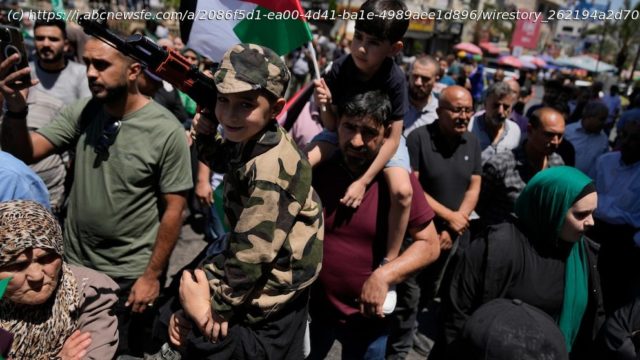Two back-to-back strikes in Beirut and Tehran targeted high-ranking figures in Hezbollah and Hamas and have been attributed to Israel
Two back-to-back strikes in Beirut and Tehran, both attributed to Israel and targeting high-ranking figures in Hamas and Hezbollah, have left Hezbollah and Iran in a quandary.
Analysts agree that both strikes hit too close to home to pass without a response, and were serious security breaches for Iran and Hezbollah. Calibrating that response to restore deterrence without sparking an even more damaging escalation may be the most delicate balancing act in nearly a year of teetering on the brink of a regional war.
Tuesday’s rare strike in Beirut’s southern suburbs killed a top Hezbollah commander who Israel says was responsible for a missile strike on a soccer field in the town of Majdal Shams in the Israeli-annexed Golan Heights, killing 12 children and teenagers. Hezbollah has denied responsibility for the attack.
While the target of the strike in Beirut was a military figure, it hit a densely populated urban neighborhood on the outskirts of the capital where Hezbollah has many of its offices, killing at least five civilians — three women and two children — and wounding dozens more.
Less than 12 hours later, the Palestinian militant group Hamas — a Hezbollah ally also backed by Iran — announced that the chief of its political bureau, Ismail Haniyeh, had been killed in an Israeli airstrike in Tehran, where he was attending the inauguration of the new Iranian president.
Israel has neither claimed nor denied responsibility for that strike, which comes nearly 10 months into the brutal war in Gaza sparked by Hamas’ deadly Oct. 7 attack on Israel. It also coincides with another push by mediators to close a cease-fire and hostage-exchange deal.
Analysts said both Hezbollah and Iran will feel compelled to retaliate, but their calculations differ.
Mohanad Hage Ali, a senior fellow at the Carnegie Middle East Center who researches Hezbollah, said that although Israel also struck in Beirut’s southern suburbs in a January attack that killed Hamas official Saleh Arouri, Tuesday’s strike targeted a top Hezbollah commander and killed civilians.
“This time, we’re too far into the war, and a Hezbollah commander is the target. Hezbollah has to respond, and if they don’t, this would be a new rule: Killing civilians on the Israeli side would lead to targeting of » the Beirut suburbs, he said.
Home
United States
USA — mix For Iran and Hezbollah, calibrating response to Israeli strikes leaves no room...






